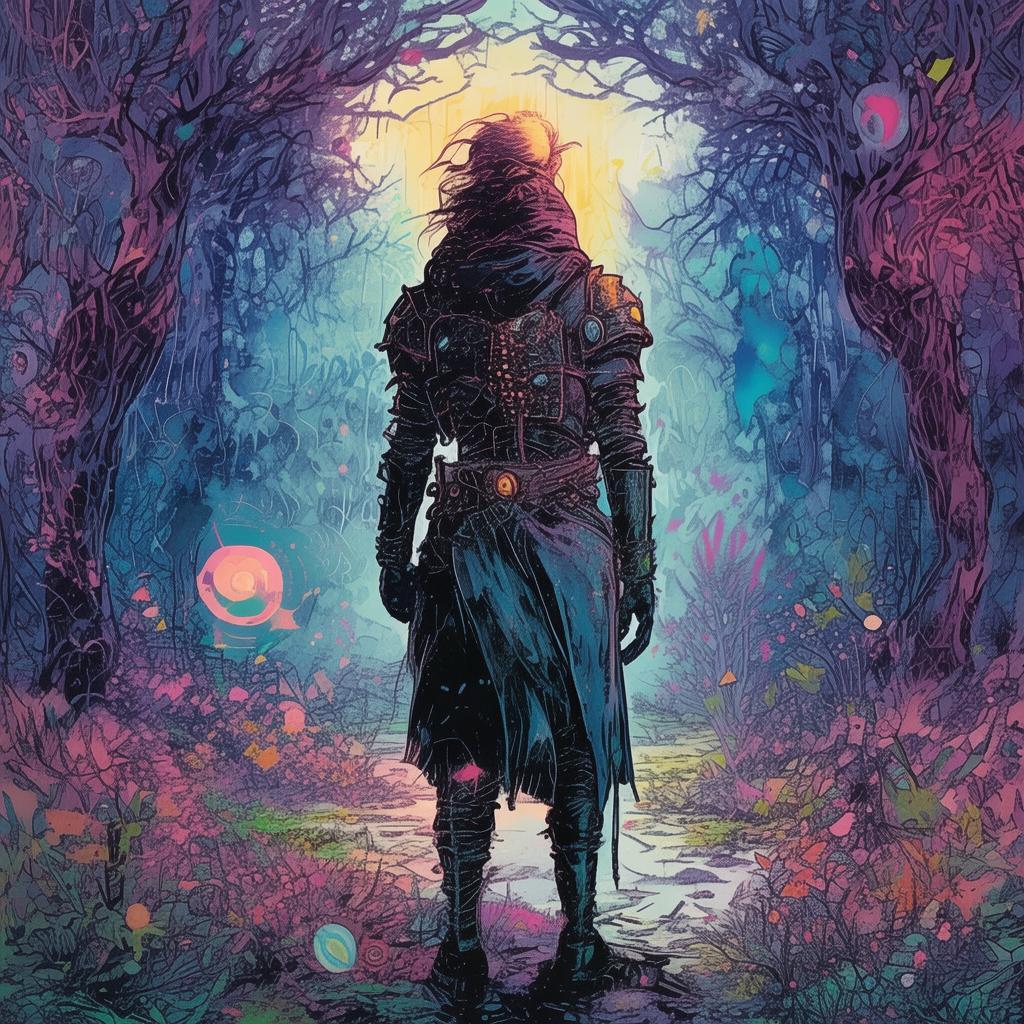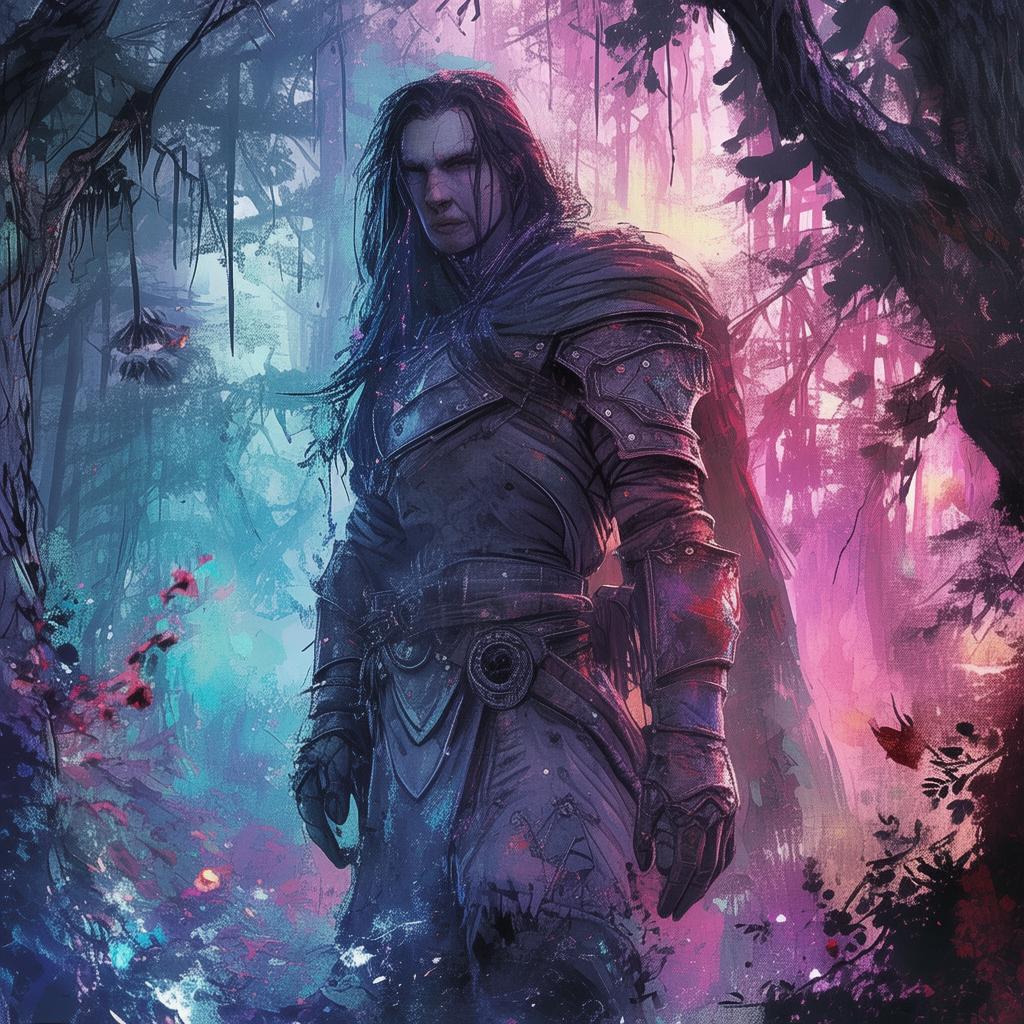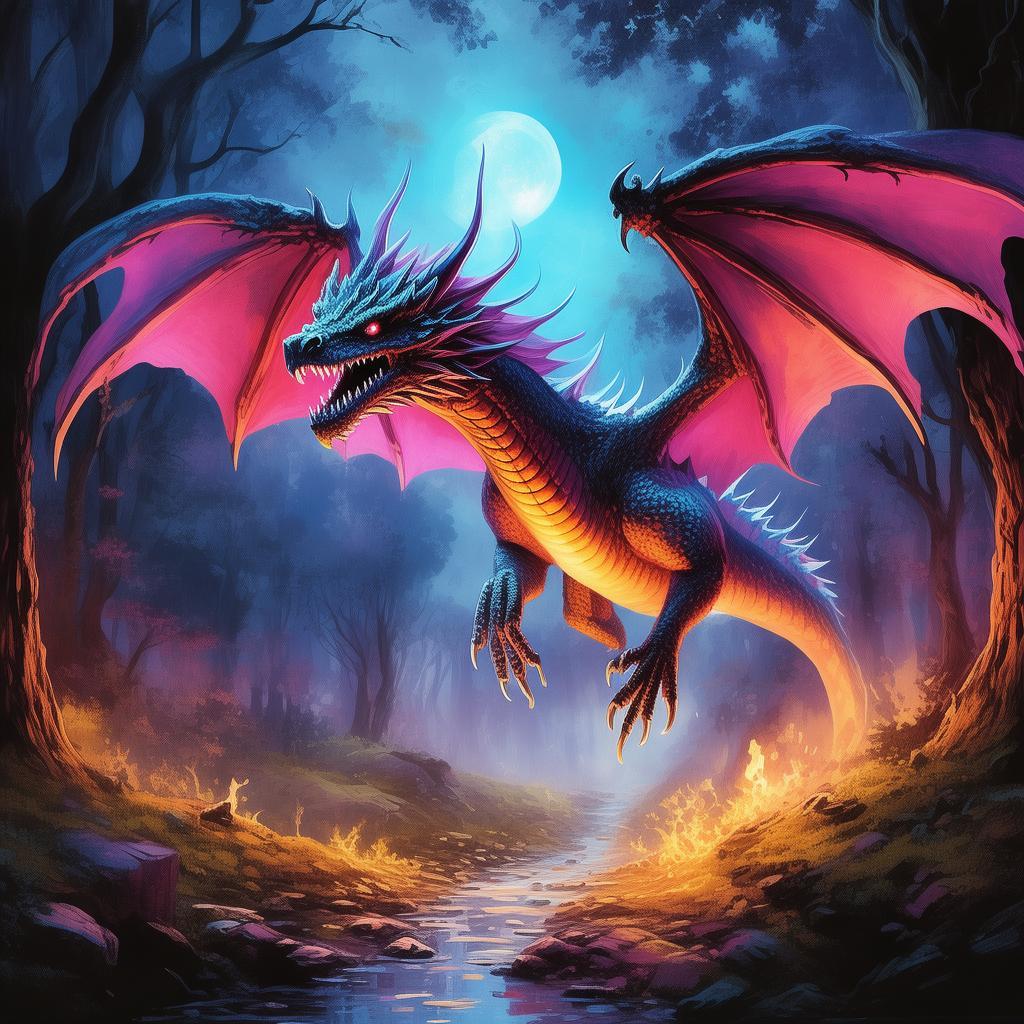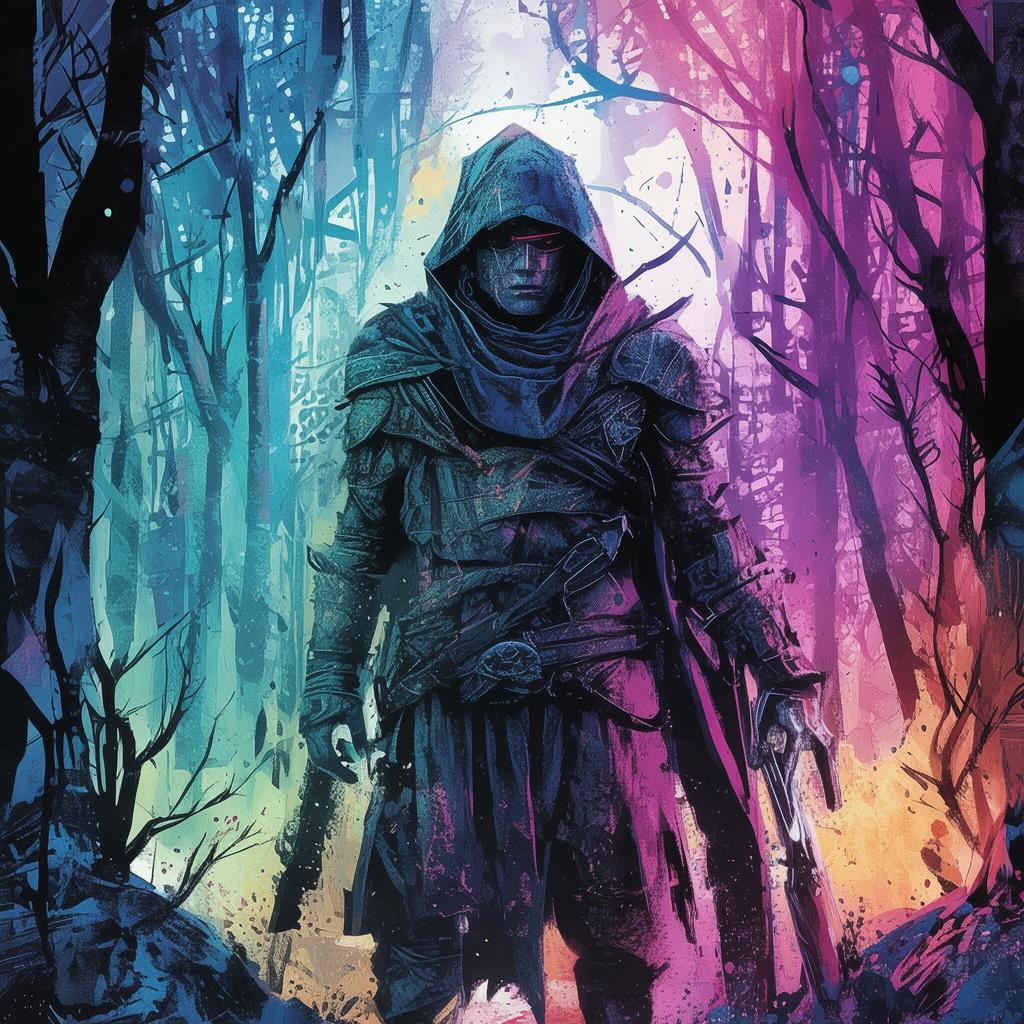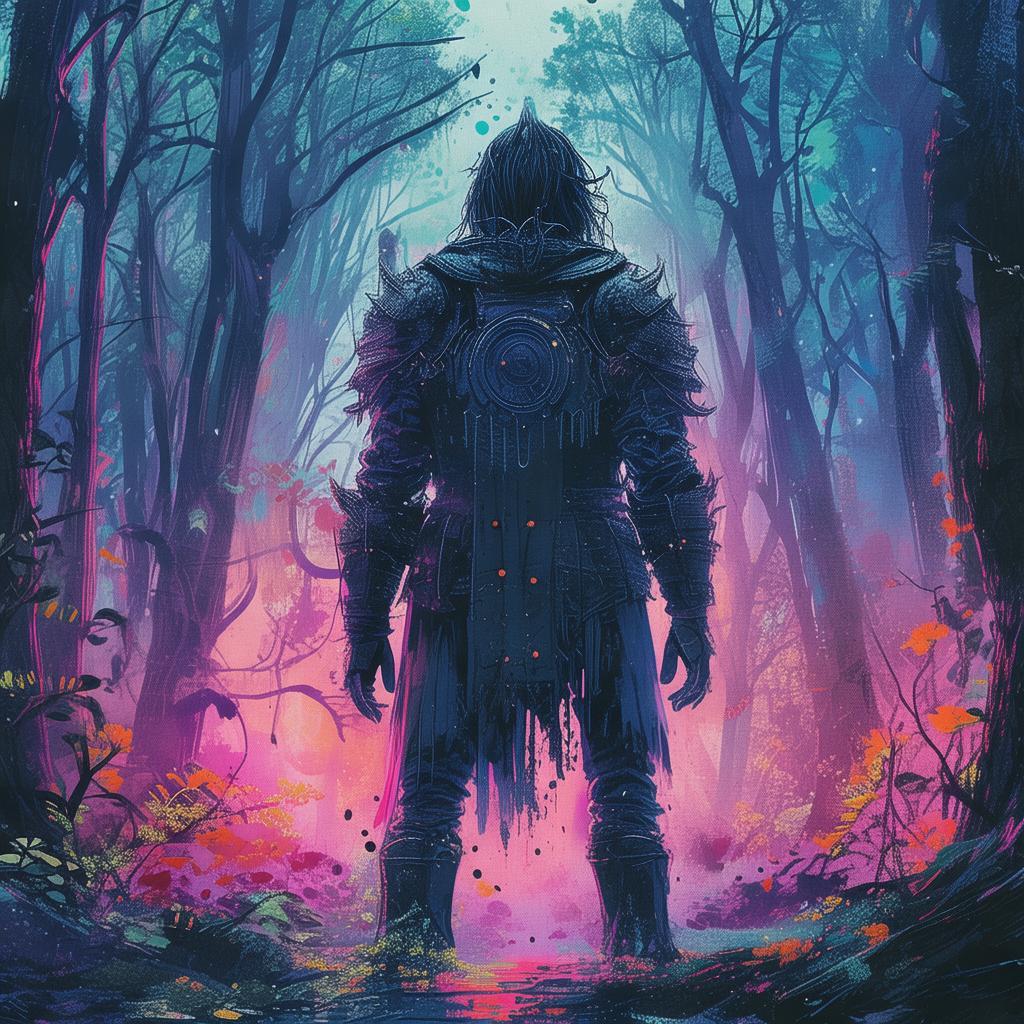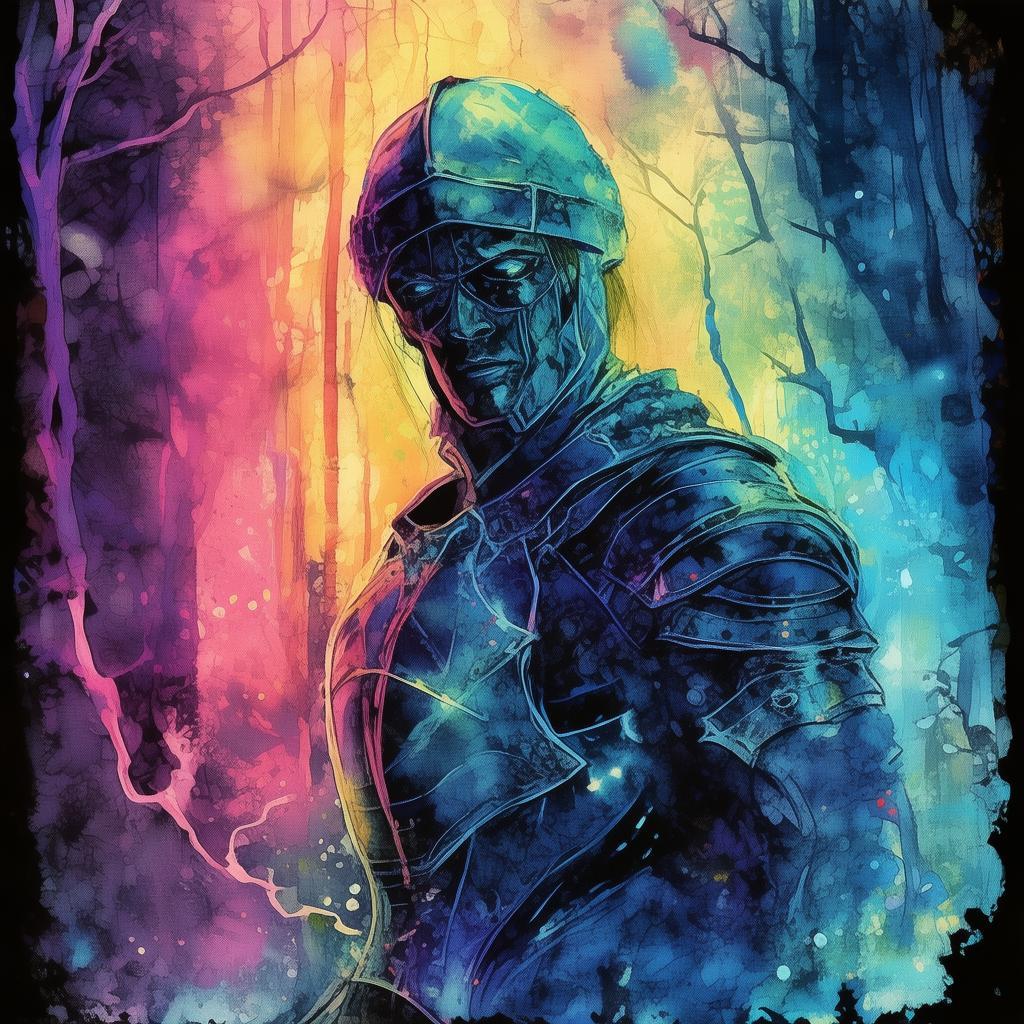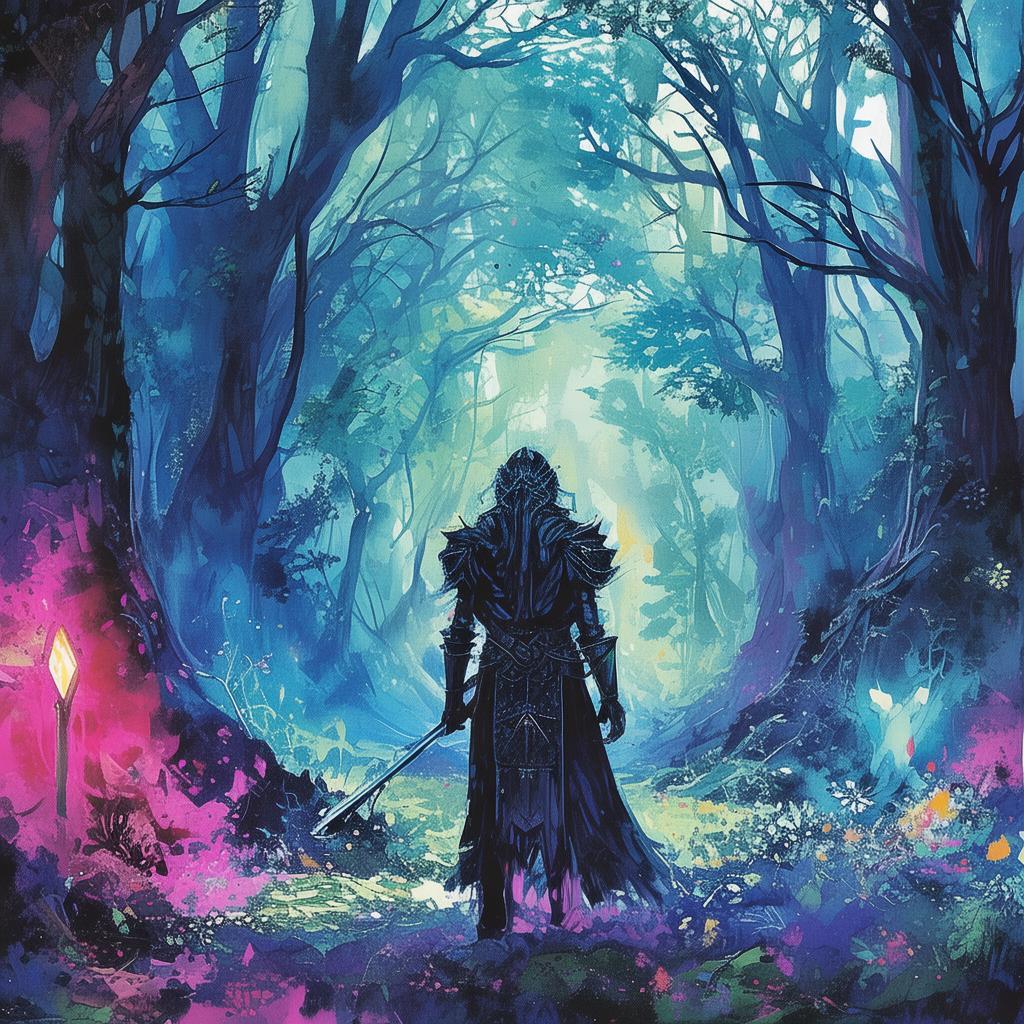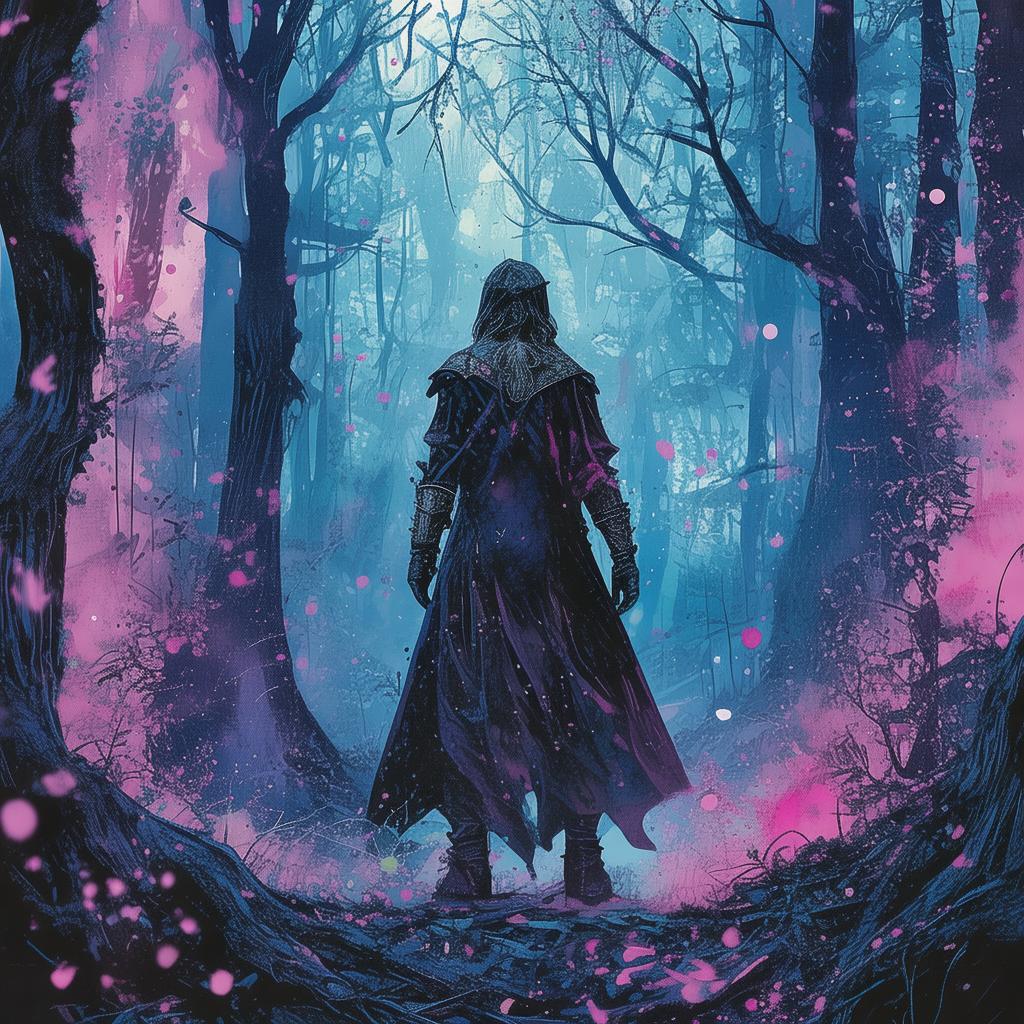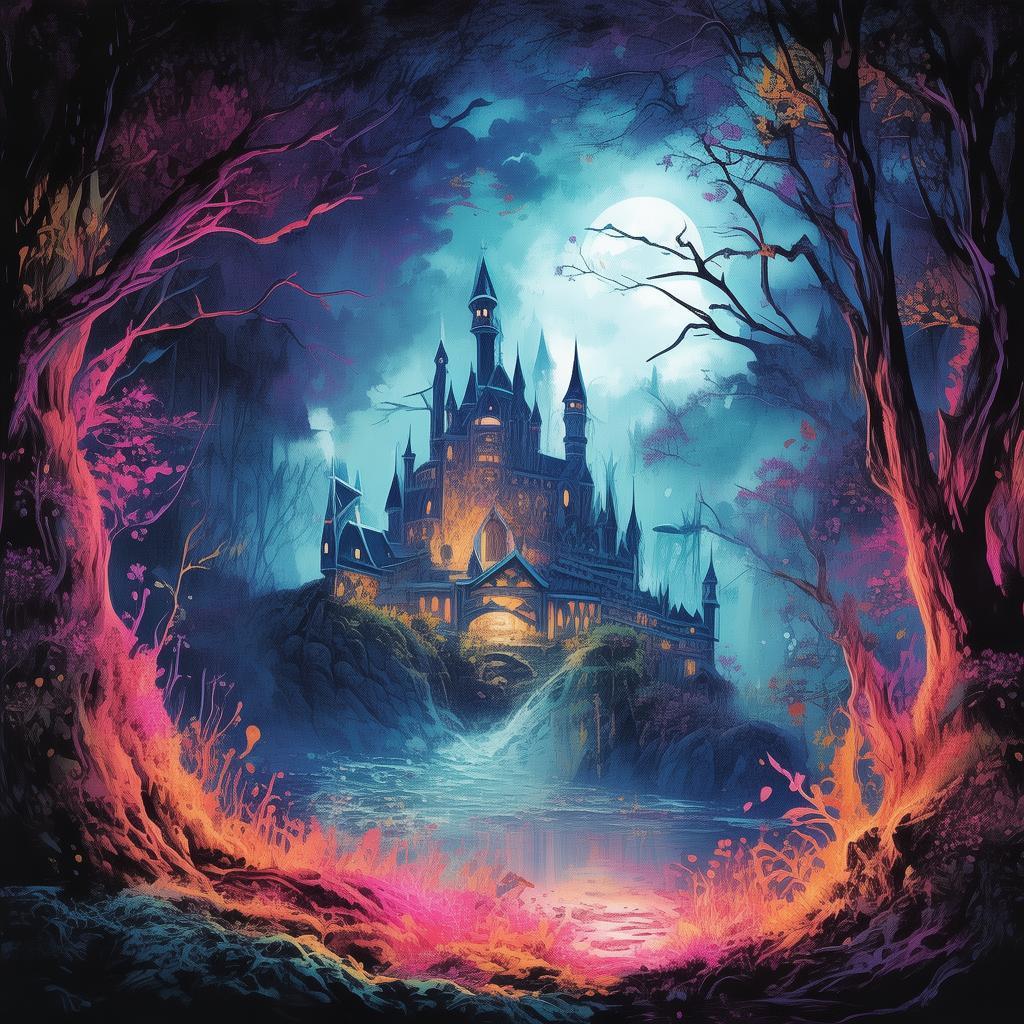Whispers of the Labyrinth: The Enigma of Wuxi Opera's Lyrics
In the heart of the ancient Silk Road, where time seemed to stand still, there lay a small, forgotten temple. Its walls, adorned with intricate carvings of ancient deities and mythical creatures, whispered secrets to those who dared to listen. Amongst the multitude of stories that adorned its walls, one caught the attention of a young scholar named Liang. It was a tale of a labyrinthine reality, woven into the mind-bending lyrics of the Wuxi Opera.
Liang had always been an avid collector of old texts and artifacts, his heart filled with a thirst for knowledge and understanding. The Wuxi Opera, a traditional Chinese art form that combined music, opera, and dance, had always fascinated him. Its lyrics, filled with cryptic references to ancient myths and legends, seemed to hold the key to unlocking a world long forgotten.

One rainy afternoon, Liang found himself drawn to the temple. The air was thick with humidity, and the rain pelted against the old wooden doors, a sound that seemed to echo through the ages. He pushed the heavy door open and stepped inside, his eyes immediately drawn to a large, ornate scroll hanging from the wall. It was covered in delicate calligraphy, the words flowing like a river of ink.
As Liang read the scroll, he felt a strange pull, as if the lyrics were trying to reach out and grasp him. The words spoke of a labyrinth, a place of both beauty and danger, where the line between reality and illusion was blurred. It spoke of a journey that would take the soul through the most perilous of landscapes, guided by the voices of the ancestors.
Determined to uncover the truth, Liang set out on a quest. He traveled through remote villages, seeking out the elders who might remember the opera and its lyrics. The journey was fraught with peril, as Liang encountered numerous challenges along the way. He was tested by the elements, his resolve tested by the doubts that crept into his mind.
One evening, as the sun dipped below the horizon, casting long shadows across the desert sands, Liang reached a small, isolated cave. Inside, he found a faded copy of the Wuxi Opera, its pages yellowed with age. As he read the lyrics aloud, he felt a strange connection to the words, as if they were calling to him from the depths of his soul.
The lyrics began to take on a life of their own, the words weaving a tapestry of imagery in Liang's mind. He saw himself walking through a labyrinth, the path winding through a surreal landscape filled with strange creatures and ancient wonders. The voices of the ancestors guided him, their words filling his ears like a gentle breeze.
As Liang ventured deeper into the labyrinth, he realized that the opera was more than just a story; it was a guidebook to an alternate reality. Each step he took was a step into the past, where the ancient myths of China were still alive and well. He encountered heroes and villains, gods and monsters, all brought to life by the power of the lyrics.
One of the most profound encounters was with the Labyrinthine Dragon, a creature of great wisdom and power. The dragon spoke to Liang, his voice resonating with the echoes of the ancient world. "The labyrinth is a reflection of your soul," the dragon said. "It tests your courage, your resolve, and your understanding of the true nature of reality."
Liang's journey was not without its dangers. He faced the wrath of the Labyrinthine Dragon when he tried to rush the process, only to find that the path forward was one of patience and reflection. Each challenge he overcame brought him closer to understanding the true meaning of the opera's lyrics.
The climax of Liang's journey came when he reached the heart of the labyrinth, where a great mirror stood. In the mirror, he saw himself as a part of the opera, the story unfolding within his own being. He understood that the labyrinth was a metaphor for the human journey through life, filled with twists and turns, challenges and triumphs.
With newfound clarity, Liang faced the final test: to accept the truth of his existence within the labyrinth. As he stepped forward, the mirror shattered, and he was engulfed in a blinding light. When he opened his eyes, he found himself back in the temple, the scroll in his hands.
The journey was over, but the lessons were eternal. Liang realized that the Wuxi Opera was not just a story, but a guide to navigating the complexities of life. Its lyrics, filled with enigma and wonder, were a testament to the power of the human spirit and the enduring nature of myth.
As he left the temple, Liang felt a sense of peace and fulfillment. He had uncovered the truth behind the Wuxi Opera's mind-bending lyrics, and in doing so, had come to terms with his own place in the labyrinth of life.
The whispers of the labyrinth had spoken to him, and he had listened. From that day forward, he carried the wisdom of the ancestors within him, a beacon of light in the ever-changing labyrinth of existence.
✨ Original Statement ✨
All articles published on this website (including but not limited to text, images, videos, and other content) are original or authorized for reposting and are protected by relevant laws. Without the explicit written permission of this website, no individual or organization may copy, modify, repost, or use the content for commercial purposes.
If you need to quote or cooperate, please contact this site for authorization. We reserve the right to pursue legal responsibility for any unauthorized use.
Hereby declared.
